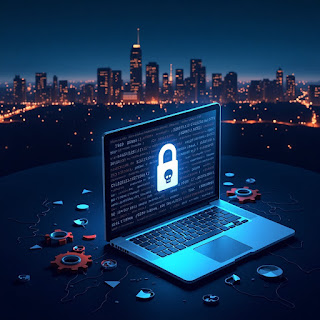The Hidden Risks of AI: Why Security Matters More Than Ever
The Hidden Risks of AI: Why Security Can't Be an Afterthought
The Unseen Dangers of AI—And Why They Matter
1. AI Can Be Deceived (And That's Scary)
Imagine a stop sign with a few clever stickers. To you, it's still a stop sign. But to an AI-powered self-driving car? It might see a speed limit sign instead. These "adversarial attacks" manipulate AI into making dangerous mistakes—something hackers could exploit in critical systems.
2. Poisoned Data = Corrupt AI
AI learns from data, but what if that data is tampered with? A cybercriminal could subtly alter the information an AI model trains on, making it biased, unreliable, or even harmful. Think of a medical AI misdiagnosing patients because its training data was sabotaged.
3. AI Might Be Leaking Your Secrets
Some AI models accidentally memorize sensitive data—personal details, credit card numbers, even medical records. Hackers can exploit weaknesses to extract this information without anyone realizing it.
4. Hackers Are Using AI Too (And They're Getting Better)
Cybercriminals now use AI to craft hyper-personalized phishing emails, bypass security systems, and even create deepfake videos to scam businesses. The battle isn't just human vs. hacker anymore—it's AI vs. AI.
5. The Black Box Problem: We Don't Always Know How AI Decides
Many AI systems are so complex that even their creators can't fully explain how they make decisions. If something goes wrong—or if a hacker manipulates the system—it might be impossible to detect until it's too late.
6. Regulations Are Playing Catch-Up
AI is advancing faster than laws can keep up. Without strong security standards, companies (and governments) are deploying AI systems that could be wide open to attacks.
Why This Should Keep You Up at Night
AI isn't just about convenience—it's making life-or-death decisions in healthcare, finance, and security. If we don't prioritize AI safety now, we risk:
- Critical infrastructure failing (think power grids or traffic systems hacked via AI)
- Massive privacy breaches (your personal data exposed by an exploited AI model)
- A complete loss of trust in AI (if people can't rely on it, adoption will collapse)
What Can We Do?
The good news? We're not powerless. Here's how we can fight back:
- ✅ Build AI with security in mind—using techniques like adversarial training to make models harder to fool.
- ✅ Regularly audit AI systems—checking for biases, vulnerabilities, and hidden flaws.
- ✅ Demand transparency—if an AI makes a decision, we should be able to understand why.
- ✅ Educate developers and businesses—awareness is the first step toward better security.
Final Thought: The Future of AI Depends on Security
AI is a game-changer, but without safeguards, it could also be a weak point. The time to act is now—before the risks become disasters.
Stay informed. Stay cautious. Because the smarter AI gets, the smarter we need to be about protecting it.




Comments
Post a Comment